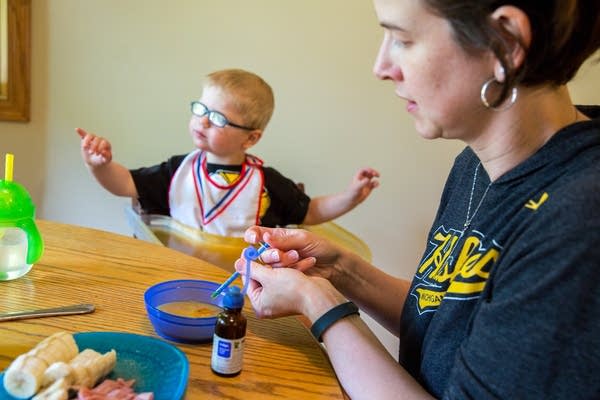Success, concerns mark first year of Minnesota medical cannabis

Jessica Hauser mixes medical marijuana tincture in with her 4-year-old son Wyatt's applesauce at their home in Woodbury on Wednesday.
Evan Frost | MPR News
Go Deeper.
Create an account or log in to save stories.
Like this?
Thanks for liking this story! We have added it to a list of your favorite stories.


